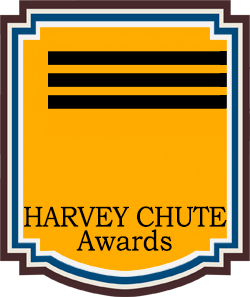Finding your writing voice can feel like a quest for the Holy Grail of self-expression.

And hopefully no one will smell of elderberries by the time you find your writing voice!
Your writing voice is the unique blend of style, tone, and personality that makes your writing distinct and yours. Whether penning a novel, crafting an essay, or composing a blog post, discovering and honing your voice is crucial for resonating with your audience and truly connecting through your words.
Here’s a guide to help you on your journey to finding your authentic writing voice:

Write Regularly and Freely
The first step in uncovering your writing voice is to write regularly. Set aside time each day or week to write without worrying about perfection. Free writing, journaling, or even experimenting with different genres can help you explore various styles and tones. The more you write, the more you’ll start to notice patterns and preferences that signal your natural voice, and this will define your voice.
Even committing to five minutes a day can work wonders. Many find setting either a time or a word count goal to keep themselves accountable leads to the best results.
Experiment and Iterate
Finding your voice is an iterative process. Experiment with different styles, tones, and formats. Don’t be afraid to take risks and push boundaries. Through trial and error, you’ll refine your voice and discover what works best for you. And, remember, your voice may evolve over time, and that’s a natural part of growth as a writer. Just go with it and trust your instincts.
Prompt books like Natalie Goldberg’s Writing Down the Bones can help you delve even deeper into different styles until you find the one that fits you best.

With insight, humor, and practicality, Natalie Goldberg inspires writers and would-be writers to take the leap into writing skillfully and creatively. She offers suggestions, encouragement, and solid advice on many aspects of the writer’s craft: on writing from “first thoughts” (keep your hand moving, don’t cross out, just get it on paper), on listening (writing is ninety percent listening; the deeper you listen, the better you write), on using verbs (verbs provide the energy of the sentence), on overcoming doubts (doubt is torture; don’t listen to it)—even on choosing a restaurant in which to write. Find it here.
Read Widely and Deeply
Expose yourself to a range of voices by reading diverse authors and genres. Try different methods, from reading one author and analyzing their language, structure, and tone, to reading a selection of books in different genres from a variety of authors to see what standards exist in each different genre, and how that might impact your own writing. Jessica Brody’s Save the Cat! Writes a Novel can be a great starting point to understanding genre, while George Saunders A Swim in a Pond in the Rain offers a masterclass in a book for how to analyze literature (at least Russian literature).
Pay attention to what resonates with you and why. Analyze how different writers use language, structure, and tone to convey their message. This not only broadens your understanding of different styles but also helps you identify elements you want to incorporate into your own writing.

Reflect on Your Influences
You know about the canon of literature you had to study in school. What is your own personal canon? Daniel Handler, AKA Lemony Snicket of the Series of Unfortunate Events fame details his own personal literary canon in his memoir And then? And then? What else? Consider what would be put into your own canon of reading to build up to your style of writing and inspiration. How does your relationship with those books change when you think of htem as your own personal canon. Understanding these influences can help you pinpoint the qualities you wish to integrate into your own voice while still making it uniquely yours.
Write for Yourself
Ultimately, writing for yourself is the most crucial step. Write what you’re passionate about and in a way that feels natural to you. When you focus on expressing your own ideas and emotions honestly, your voice will emerge naturally. Remember, writing is a personal journey, and your voice is a reflection of your unique perspective.

Embrace Your Authentic Self
Your writing voice is a reflection of who you are. Embrace your quirks, perspectives, and experiences. Don’t be afraid to let your personality shine through your writing. Authenticity resonates with readers more than a polished, but impersonal, style. Write from your heart and trust that your genuine voice will come through.
Seek Feedback
While we are often told writing is a solitary activity, you being here reading these words just shows how much community is needed for writing and writers to succeed! Writing groups can often be found at your local bookstore or through your local library. You can also join online communities like The Roost, which feature regular write-ins, online workshops, and so much more!

Email AuthorOutreach@Chantireviews.com to learn more about The Roost, where Authors like to Perch!
You can learn about all sorts of writing groups here.
Once you get feedback from those in community, the next step is to hire a professional to look at your work. In the Big Five Traditional Publishing Houses over 40 pairs of eyes will look at your work. If indie publishing or publishing through a small press, hiring a professional for a Manuscript Overview, or other Editorial Services like Developmental Editing, Line Editing, Copy Editing, or Proofreading is crucial to standing out from the millions of books that are published every year!


















Leave A Comment